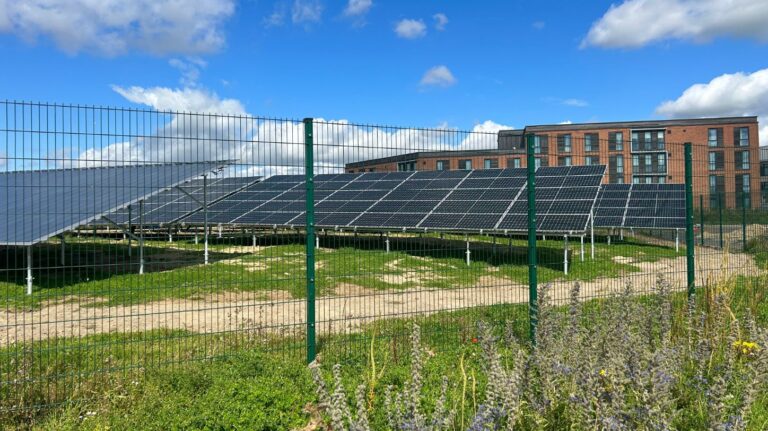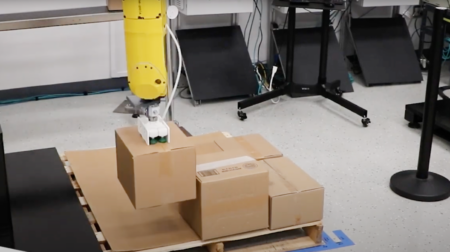Multinational engineering company Siemens has built a 200kWp solar farm for the University of York located at the university’s new Institute for Safe Autonomy, as part of £1.5m research project to support autonomous research.
Spanning more than 1,400m2, the solar farm features various panel configurations, including static ground installations, a sun-tracking array, and building-integrated photovoltaics (BIPV).
This project aims to enhance the Institute’s research capabilities in developing and testing robots and autonomous systems for inspecting and maintaining solar arrays.
The solar farm will serve as a ‘living lab,’ providing valuable insights for landowners and operators on integrating robotic technology.
It will also help the institute achieve net-zero energy consumption by 2025, generating over 80% of its daily 600kWh energy use, Siemens said in a statement.
Siemens supported the project through consultancy services and the setup of a data collection system for the panels.
Lynx Sustainable Solutions Ltd. installed the solar arrays. The project, one of nine funded by nearly £19m from UKRPIF, underscores the university’s commitment to sustainable energy and technological innovation.
“Robotics, autonomous systems and AI have the potential to transform the way we live, travel and work in the future,” said Professor Miles Elsden, director of the Institute for Safe Autonomy.
“Integrating them with the production of renewable energy will ultimately play a key role in the journey towards net zero. This innovative research project marks an important milestone for the Institute since we opened earlier this year and reaffirms our commitment as a university to sourcing sustainable energy.”









